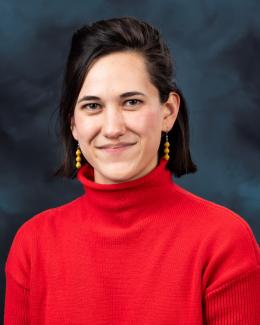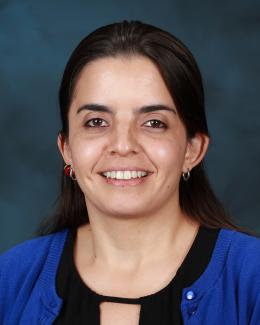This summer, the Department of Energy’s Oak Ridge National Laboratory welcomed more than 500 students to campus through the lab’s range of internship programs, which are offered in areas such as biology, national security and computing. From May to August, staff from the Computing and Computational Sciences Directorate mentored 20 students through two internship programs — the Next Generation Pathways to Computing Summer School, also known as NEXTGENCOMPUTING and the Pathways to Computing Internship Program, or PCIP. These programs introduced students to the foundations of computational science and high-performance computing through tutorials, expert lectures and hands-on exercises.
NEXTGENCOMPUTING and PCIP are unique among ORNL computing internships because of their target demographic: high school and undergraduate students from underrepresented groups. The opportunity for early exploration of computing is one of the most important aspects of these programs for Verónica Melesse Vergara, System Acceptance and User Environment group leader and director of PCIP. She also co-leads NEXTGENCOMPUTING with Alison Melton, a public outreach and education specialist at ORNL.
“Our hope is that we can catch students before they’ve decided computing is not for them and show them career options and people that look like them that they can talk to,” Melesse Vergara said.
Opportunity and experience are important to Melesse Vergara, who is originally from Quito, Ecuador and studied mathematics, physics and computational science in the United States. As an international student, she was limited to on-campus internships and jobs that weren’t in her field. It wasn’t until her senior year that she landed her first job in computing at a company owned by her professor, computer scientist Dr. Richard Crandall. The experience helped Melesse Vergara discover careers in computing and influenced how she runs PCIP.
“One of my requirements if I was going to lead this internship was that international students would be allowed to participate,” Melesse Vergara said. “That was important to me. PCIP has always been open to everyone studying in the U.S.”
Melesse Vergara has worked at ORNL for nearly a decade and has led system testing and acceptance for both the IBM AC922 Summit supercomputer and the HPE Cray EX Frontier system, which is the first exascale supercomputer and the fastest in the world. She has also worked closely with other Oak Ridge Leadership Computing Facility staff to develop and facilitate high-performance computing education opportunities for staff, the general public and of course, students. The 2023 programs were developed in collaboration with ORNL HPC engineer Suzanne Parete-Koon, software engineer Suzanne Prentice, HPC engineer Togo Odbadrakh and postdoctoral research associate Nolan English.
PCIP began in 2019 with a focus on increasing diversity and participation from underrepresented groups in computing. During the 10-week program, students work with mentors on computing projects in domains ranging from astrophysics to AI and present at a poster session at the end of the summer.
The success of PCIP helped pave the way for CCSD’s newest computing internship, NEXTGENCOMPUTING, which is funded by DOE and is open to high school students and recent graduates from ORNL’s surrounding counties. During this year’s five-week program, students learned foundational computing concepts through an HPC crash course led by Parete-Koon and then applied those concepts to an AI-based team project in which they trained a robot to follow a set path. The project was an exciting challenge for NEXTGENCOMPUTING student Saachi Griffin.
“I learned how to train a neural network so that the robot could follow a road. We took over 200 photos of the road to train the neutral network,” Griffin said. “We got our robot, Gary, to complete five laps around the room!”
Programs such as PCIP and NEXTGENCOMPUTING, which are open to students without previous computing experience, are an essential part of developing and recruiting the next generation of HPC professionals, and Melesse Vergara is optimistic about the impact of the internships on curious students.
“We want them to see that there are diverse populations that work in science, technology and engineering at places like ORNL,” Melesse Vergara said. “They see that they could have a career that’s about making the world better.”
ORNL offers on-site internships during the summer and fall. For more information about student programs, visit https://education.ornl.gov/.
The OLCF is a DOE Office of Science user facility.
UT-Battelle manages ORNL for DOE’s Office of Science, the single largest supporter of basic research in the physical sciences in the United States. DOE’s Office of Science is working to address some of the most pressing challenges of our time. For more information, visit https://energy.gov/science.









